‘Secretive, opaque’ salmon industry and government grabs journo’s attention
He has witnessed some of the world’s biggest conflicts up close, but now former foreign correspondent Peter George is playing a significant role in the state’s salmon farm battle.
Tasmania
Don't miss out on the headlines from Tasmania. Followed categories will be added to My News.
AS a foreign correspondent Peter George has seen his share of conflict.
Since retiring to southern Tasmania, he’s leading a battle for improved salmon farming practices.
“Mostly, I live a quiet and enjoyable life in Tasmania but I suspect I have never quite been able to leave my journalist’s investigative habits behind and this industry and government is so secretive, so opaque, that it’s fertile ground for an inquisitive reporter,” George, 70, says.
He began his journalistic career as a 17-year-old at the Sydney Morning Herald before moving to the ABC.
His mother took a troop ship to England to marry his British naval officer father and he grew up in various places where his father was sent “with people of many races”.
“It probably gave me a lust to explore the world, as well as a colour-blind attitude to race and religion,” he said.
“Travel and curiosity is what brought me to journalism.”
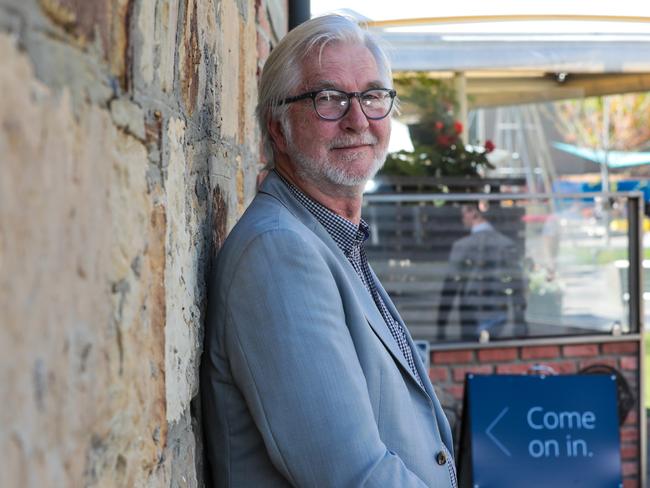
George recalls standing close to former prime minister Gough Whitlam when he was being sacked on the steps of Parliament House in 1975, which he described as “a great time to be a political reporter”.
He worked in London as an ABC European correspondent reporting on the troubles in Northern Ireland, IRA bombings in the UK, Margaret Thatcher’s confrontations with miners, and the Falklands War.
George, who has been married twice and has three children and four grandchildren, was the ABC’s first Middle East correspondent in 1981.
“I covered the Lebanon Civil War and the 1982 Israeli invasion of Lebanon. Iran/Iraq war. Palestinian intifada … lots of nasty stuff, unfortunately.”
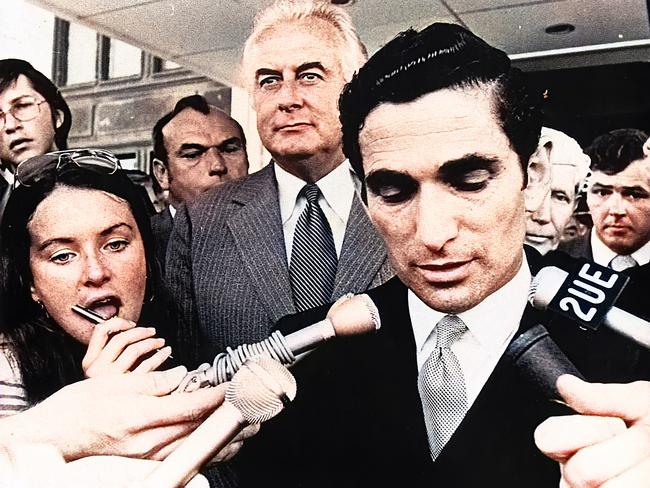
He interviewed South Africa’s Nelson Mandela after he was released from prison and was the first western journalist to fly in Palestinian Liberation Organisation leader Yasser Arafat’s private plane to see how he flew between secret locations.
George sailed to Tasmania in 2011 with his South African wife-to-be, a Four Corners editor, and he said in the Tamar she “immediately felt at home” so they kept sailing until they got to Cygnet and decided to settle in an old shack that they moved to permanently in 2014.
“I saw my first salmon farm in a Scotland loch in the ’80s and thought the idea was brilliant: save the wild fish,” he said.
“In Tassie, I started to think more about them because people complained to me about debris, lights, noise and beaches turning grey, et cetera.
“People who knew me as a former reporter would come and tell me their stories about impacts of fish farms and ask what could be done.
“They were often afraid to complain, as people often are, and because they’d heard stories of retribution – true or not, many people certainly believe that there’ll be a backlash.
“I don’t live near fish farms so I don’t see any obvious impact other than the debris I pick up when I walk on beaches, so it seemed I was in an ideal situation to help other people without worrying about being a ‘NIMBY’. Also, at my age, what did I have to lose?
“It took Richard Flanagan 15 years to realise that he could never get the fish farms to reduce the intrusive noise at his shack on Bruny Island … so I don’t feel too badly that it took me three years to realise the industry doesn’t care about community.”
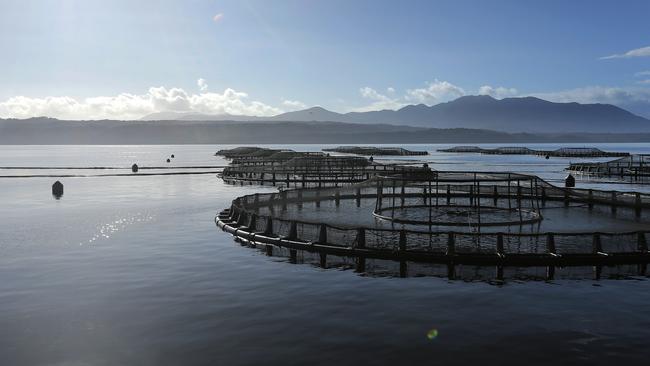
George is the president of Neighbours of Fish Farming and co-chair of the Tasmanian Alliance for Marine Protection.
Environmentalist Bob Brown, who asked George to chair a public meeting at Cygnet in 2015, describes him as a “great asset and steady hand”.
“Our members and supporters are Liberal and Labor voters, professional and rec fishers … all sorts of ordinary people, many of whom would never consider themselves ‘greenies’ or even environmentalists,” George says.
“But even the most conservative of them are willing to become more militant because neither industry nor government pay any heed to reasonable behaviour, views or criticisms.
“A sustainable industry with sustainable jobs is probably achievable – but not unless the industry changes and puts the island and its people ahead of profits.”
For George, his greatest challenge is caring for his mother, who has advanced dementia.
“It takes a lot more energy, effort and time than salmon farms. We built a house almost next door for my mum from Canberra and her older sister from Sydney some four or five years ago who died at 97.
“We had to put mum into dementia care recently, which was very sad.”
Concerns over North-West fish farm expansion plans
A TASMANIAN council which wants a moratorium on fish farming in the State’s North West until proper independent research is completed will approach neighbouring municipalities to gain a history-making “combined stance” to take to the State Government.
Fish farmer Petuna moved into Strahan’s Macquarie Harbour in the 1980s then Tassal followed by Tassal and Huon Aquaculture.
Petuna’s has released early plans to farm salmon 12km off Stanley but a “secret” map released last week show there are broader plans to expand further into the NW.
Councillor Ken Dorsey’s motion to halt those plans until the full impacts of aquaculture on the marine environment and commercial fishing livelihoods were known, was supported at Tuesday night’s meeting.
The 5-4 councillor support came despite the council’s general manager advising against getting involved in the discussion “at this time.”
The council’s “bold decision” has been applauded by the Tasmania Alliance for Marine Protection.
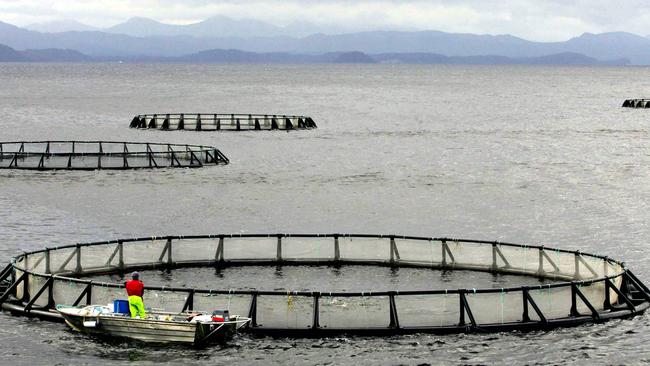
“The council’s bold decision to confront the salmon industry’s plans in North West Tasmania stands as a clear warning to the state government that the public mood has turned against an industry that has proved massively damaging to other parts of the state’s waterways,” TAMP’s Peter George said.
“The councillors are to be congratulated for becoming the first council to stand up for their residents, their coast and the region’s reputation in the face of the industry’s false promises of jobs and sustainability.”
Petuna has already released a proposal to establish fish farms in an area between Stanley and Three Hummock Island.
The company says the farming zone it is exploring is offshore and almost 12km from the shoreline and monitoring showed the high-energy conditions would result in rapid dilution and dispersal of nutrient emissions.
Burnie City Council GM Simon Overland said if fish farming was to proceed there would be a range of regulatory processes to be followed and the council should wait to see what specific proposals come forward and not be seen as prejudging the issue.
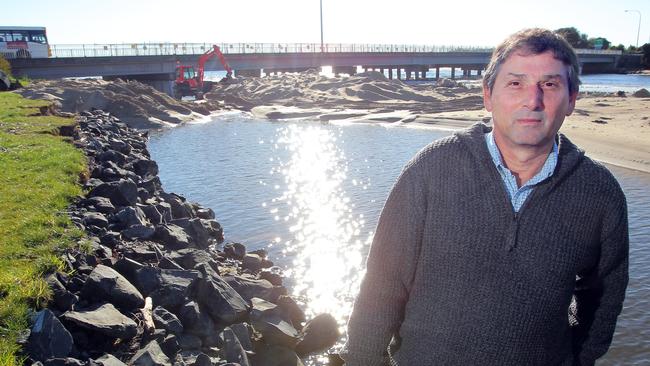
The State Government is currently looking at moving fish farming out into deeper Commonwealth waters but at the same time maps released by community group Neighbours of Fish Farming show it plans to allow access to large parts of Tasmania’s coast to salmon farmers.
“We are representatives of our people and the closest to out constituents and we hear their concerns,’ Cr Dorsey said.
“All we have done at this stage is make a statement and ask other council to back that statement. We are asking for evidence that an expansion would not be harmful to our environment, other fishers and tourism.”
The council is seeking a meeting with Wynyard Waratah and Circular Head councils and the government to discuss the issue.
It will also seek guarantees that fish farming will not create the same issues as those seen in Macquarie Harbour and that any expansion will not impact commercial and recreational fishers and negatively affect the tourism industry through a degraded coastal environment.
“This will be painted as a “Greenie” issue, it isn’t. This is about the preservation of the NW
Coast,” Cr Dorsey said.




